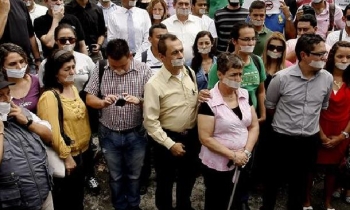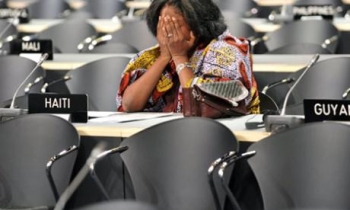With their presses and offices underwater, print and broadcast journalists in New Orleans are leaning on the Web to keep the news churning in the wake of Hurricane Katrina.
According to the Wall Street Journal, the New Orleans Times-Picayune, which has been in operation since 1837, refuses to go unpublished even in the midst of the catastrophe. Managing Editor Dan Shea and many of his staff have continued to work outside New Orleans to put the news online, knowing that their homes are flooded.
"'We will not miss a day of publishing, if the brave people whom I've lived with for the last two days can help it. Most of our readers are now outside of the city and we can reach them on the Internet. We also want to restart some printing and get papers to the residents left behind,'" Shea told the WSJ.
"The Internet, as a decentralized communications network, can be more resilient than traditional media when natural disasters occur," wrote the New York Times, which quoted the following from Jeff Jarvis, a consultant to online media companies:
"Owning broadcast towers and printing presses were useless. ... The Web proved to be a better media in a case like this."
Meanwhile, the NYTimes also reported that local news stations like WNOL Channel 38, a WB affiliate, and WGNO Channel 26 (of ABC) went off the air and employed their Web sites to get the news out. Their sites feature weather updates, footage of the hurricane’s aftermath and even some advice for coping with the event.
The Web has been a source of consolation for many in dealing with the aftermath of Hurricane Katrina. OJR now features a wiki for ongoing online coverage of the disaster.
Robert MacMillan of The Washington Post summed up the general sentiment of the week quite nicely: "Well, thank goodness for the Internet."









